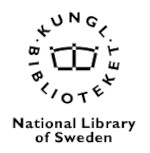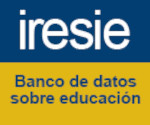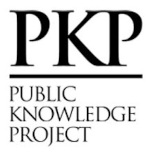(Lack of) Knowledge of brazilian psychologists about laws that protect children from suffering physical violence
DOI:
https://doi.org/10.5020/23590777.rs.v24i1.e14117Keywords:
psychologists, legislation, Child and adolescent statute, punishment, violence in childrenAbstract
National and international studies have shown that corporal punishment is ineffective and harmful to children's development. Although progress has been made worldwide in banning such violence, there is still strong resistance to the complete extinction of this deeply rooted tradition. In this sense, psychologists are important protagonists in the search for the eradication of this practice, working with parents and/or in other educational contexts. Therefore, the aim of this qualitative study was to investigate the knowledge of a group of Brazilian psychologists about child protection legislation. Participants were 13 psychologists, aged between 25 and 42, who completed a socio-demographic questionnaire and an online interview. After a qualitative content analysis, four categories and two subcategories were identified and the results showed that the participants were predominantly aware of the Statute of the Child and Adolescent (ECA), although this knowledge was not detailed. The majority were found to be unaware of the Menino Bernardo Law. Furthermore, most of the participants had experience with cases of corporal punishment in their professional practice and had the perception that the protective education of the child must be based on affection and clear limits. We concluded that there is a worrying predominance of a lack of depth in psychologists' knowledge of legislation aimed at protecting children. Therefore, there is a need for national initiatives aimed at providing psychologists with information about legislation and its effectiveness.
Downloads
References
Afifi, T. O., Ford, D., Gershoff, E. T., Merrick, M., Grogan-Kaylor, A., Ports, K. A., MacMillan, H. L., Holden, G. W., Taylor, C. A., Lee, S. J., & Peters Bennett, R. (2017). Spanking and adult mental health impairment: the case for the designation of spanking as an adverse childhood experience. Child Abuse & Neglect: The International Journal, 71, 24-31. https://doi.org/10.1016/j.chiabu.2017.01.014
Altschul, I., Lee, S. J., & Gershoff, E. T. (2016). Hugs, not hits. Warmth and spanking as predictors of child social competence. Journal of Marriage and Family, 78, 695-714. https://doi.org/10.1111/jomf.12306
Associação Americana de Psicologia. (2019). Resolution on Physical Discipline of Children By Parents. https://www.apa.org/about/policy/physical-discipline.pdf
Bardin, L. (2016). Análise de conteúdo. Edições 70.
Baumrind, D., Larzelere, R. E., & Cowan, P. A. (2002). Castigo físico comum: É prejudicial? Comentário sobre Gershoff. Psychological
Bulletin, 128(4), 580–589. https://doi.org/10.1037/0033-2909.128.4.580
Brambilla, B. B., & Avoglia, H. R. C. (2010). O Estatuto da criança e do adolescente e a atuação do psicólogo. Psicologo informacao, 14(14), 102-121. http://pepsic.bvsalud.org/scielo.php?pid=S1415-88092010000100007&script=sci_abstract
Lei nº 8.069, de 13 de julho de 1990. (1990, 16 de julho). Dispõe sobre o Estatuto da Criança e do Adolescente e dá outras providências. Presidência da República. http://www.planalto.gov.br/ccivil_03/leis/l8069.htm
Lei da Palmada - Projeto de Lei nº 7.672, de 16 de julho de 2010. (2010, 16 de julho). Altera a Lei nº 8.069, de 13 de julho de 1990, que dispõe sobre o Estatuto da Criança e do Adolescente, para estabelecer o direito da criança e do adolescente de serem educados e cuidados sem o uso de castigos corporais ou de tratamento cruel ou degradante. Presidência da República. https://www2.camara.leg.br/atividade-legislativa/discursos-e-notas-taquigraficas/discursos-em-destaque/lei-da-palmada
Lei nº 13.010, de 26 de junho de 2014. (2014, 26 de junho). Altera a Lei nº 8.069, de 13 de julho de 1990 (Estatuto da Criança e do Adolescente), para estabelecer o direito da criança e do adolescente de serem educados e cuidados sem o uso de castigos físicos ou de tratamento cruel ou degradante, e altera a Lei nº 9.394, de 20 de dezembro de 1996. Presidência da República. http://www.planalto.gov.br/ccivil_03/_ato2011-2014/2014/lei/l13010.htm
Conselho Federal de Psicologia. (2005). Código de Ética Profissional do Psicólogo. CFP. https://site.cfp.org.br/wp-content/uploads/2012/07/codigo-de-etica-psicologia.pdf
Convenção sobre os Direitos da Criança. (1989). Instrumento de direitos humanos mais aceito na história universal. Foi ratificado por 196 países. Unicef. https://www.unicef.org/brazil/convencao-sobre-os-direitos-da-crianca
Cuartas, J., Ward, K. P., Ma, J., & Grogan-Kaylor, A. (2020). Physical punishment and Colombian children and adolescents’ cognitive and behavioral outcomes. Journal of Applied Developmental Psychology, 68(101140). https://doi.org/10.1016/j.appdev.2020.101140
Cuartas, J., Weissman, D. G., Sheridan, M. A., Lengua, L., & McLaughlin, K. A. (2021). Corporal punishment and elevated neural response to threat in children. Child development, 92(3), 821-832. https://doi.org/10.1111/cdev.13565
Dias, D. S. (2011). Tapa na Bunda: Como impor limites e estabelecer um relacionamento sadio com as crianças em tempos politicamente corretos. Urbana.
Durrant, J. E., & Ensom, R. (2017). Twenty-five years of physical punishment research: What have we learned? Journal of Korean Academy of Child and Adolescent Psychiatry, 28(1), 20-24. https://doi.org/10.5765/jkacap.2017.28.1.20
Fréchette, S., & Romano, E. (2017). How do parents label their physical disciplinary practices? A focus on the definition of corporal punishment. Child Abuse & Neglect, 71, 92-103. https://doi.org/10.1016/j.chiabu.2017.02.003
Gershoff, E. T., & Grogan-Kaylor, A. (2016). Spanking and Child Outcomes: Old Controversies and New Meta-Analyses. Journal of Family Psychology, 30(4), 453–469. https://doi.org/10.1037/fam0000191
Heilmann, A., Mehay, A., Watt, R. G., Kelly, Y., Durrant, J. E., Turnhout, J. V, & Gershoff, E. T. (2021). Physical punishment and child outcomes: a narrative review of prospective studies. The Lancet, 398(10297), 355-364.
https://doi.org/10.1016/S0140-6736(21)00582-1
Jun, M., Lee, S. Y., Shim, T. E. (2023) A study on the subjectivity of South Korean parents regarding corporal punishment in early childhood. Child Abuse & Neglect, 140, 1-14. https://doi.org/10.1016/j.chiabu.2023.106193
Larzelere, R. E., & Kuhn, B. R. (2005). Comparing child outcomes of physical punishment and alternative disciplinary tactics: a meta-analysis. Clinical child and family psychology review, 8(1), 1–37. 10.1007/s10567-005-2340-z
Lee, S. J., Grogan-Kaylor, A., & Berger, L. M. (2014). Parental spanking of 1-year-old children and subsequent child protective services involvement. Child Abuse & Neglect, 38(5), 875–883. https://doi.org/10.1016/j.chiabu.2014.01.018
Lilienfeld, S. O., Ritschel, L. A., Lynn, S. J., Cautin, R. L., & Latzman, R. D. (2013). Why many clinical psychologists are resistant to evidence-based practice: Root causes and constructive remedies. Clinical Psychology Review, 33(7), 883-900. https://doi.org/10.1016/j.cpr.2012.09.008
Ma, J., Grogan-Kaylor, A. C., Pace, G. T., Ward, K. P., & Lee, S. J. (2022). The association between spanking and physical abuse of young children in 56 low-and middle-income countries. Child Abuse & Neglect, 129, 1-11. https://doi.org/10.1016/j.chiabu.2022.105662
Miller-Perrin, C., & Rush, R. (2018). Attitudes, knowledge, practices, and ethical beliefs of psychologists related to spanking: a survey of American Psychological Association division members. Psychology Public Policy and Law, 24(4), 405–417. https://doi.org/10.1037/law0000184
Paiva, T., Pimentel, C., Lima, K., & Santos, M. (2017). Construção e validação da escala de atitudes frente à punição corporal em crianças. Revista E-Psi, 7(1), 39-59. https://revistaepsi.com/wp-content/uploads/artigos/2017/Ano7-Volume1-Artigo3.pdf
Patias, N., Siqueira, A., & Dias, A. (2013). Práticas educativas e intervenção com pais: A educação como proteção ao desenvolvimento dos filhos. Mudanças - Psicologia da Saúde, 21(1), 29-40. https://doi.org/10.15603/2176-1019/mud.v21n1p29-40
Pinto, L. A. P A., & Colossi, P. M. (2017). Percepção materna acerca das práticas educativas coercitivas e a transmissão de modelos familiares. Contextos Clínicos, 10(2), 157-171. https://doi.org/10.4013/ctc.2017.102.02
Santos, R. M. D. (2021). O debate sobre a “Lei da Palmada” na Câmara dos Deputados. Revista Brasileira de Ciência Política, (36), 1-34. https://doi.org/10.1590/0103-3352.2021.36.247860
Sidman, M. (2009). Coerção e suas implicações. Livro Pleno.
Skinner, B. F. (2003). Ciência e comportamento humano (11a ed.). Martins Fontes.
Trindade, A. D. A., & Hohendorff, J. V. (2020). Efetivação da Lei Menino Bernardo pelas redes de proteção e de atendimento a crianças e adolescentes. Cadernos de Saúde Pública, 36(10), 1-11. https://doi.org/10.1590/0102-311X00193919
Weber, L. (2012). Eduque com carinho: Equilíbrio entre amor e limites: para pais (4a ed.). Juruá.
Downloads
Published
How to Cite
Issue
Section
License
Copyright (c) 2024 Revista Subjetividades

This work is licensed under a Creative Commons Attribution-NonCommercial-ShareAlike 4.0 International License.
Para autores: Cada manuscrito deverá ser acompanhado de uma “Carta de submissão” assinada, onde os autores deverão declarar que o trabalho é original e inédito, se responsabilizarão pelos aspectos éticos do trabalho, assim como por sua autoria, assegurando que o material não está tramitando ou foi enviado a outro periódico ou qualquer outro tipo de publicação.
Quando da aprovação do texto, os autores mantêm os direitos autorais do trabalho e concedem à Revista Subjetividades o direito de primeira publicação do trabalho sob uma licença Creative Commons de Atribuição (CC-BY), a qual permite que o trabalho seja compartilhado e adaptado com o reconhecimento da autoria e publicação inicial na Revista Subjetividades.
Os autores têm a possibilidade de firmar acordos contratuais adicionais e separados para a distribuição não exclusiva da versão publicada na Revista Subjetividades (por exemplo, publicá-la em um repositório institucional ou publicá-la em um livro), com o reconhecimento de sua publicação inicial na Revista Subjetividades.
Os autores concedem, ainda, à Revista Subjetividades uma licença não exclusiva para usar o trabalho da seguinte maneira: (1) vender e/ou distribuir o trabalho em cópias impressas ou em formato eletrônico; (2) distribuir partes ou o trabalho como um todo com o objetivo de promover a revista por meio da internet e outras mídias digitais e; (3) gravar e reproduzir o trabalho em qualquer formato, incluindo mídia digital.
Para leitores: Todo o conteúdo da Revista Subjetividades está registrado sob uma licença Creative Commons Atribuição (CC-BY) que permite compartilhar (copiar e redistribuir o material em qualquer suporte ou formato) e adaptar (remixar, transformar e criar a partir do material para qualquer fim) seu conteúdo, desde que seja reconhecida a autoria do trabalho e que esse foi originalmente publicado na Revista Subjetividades.





















